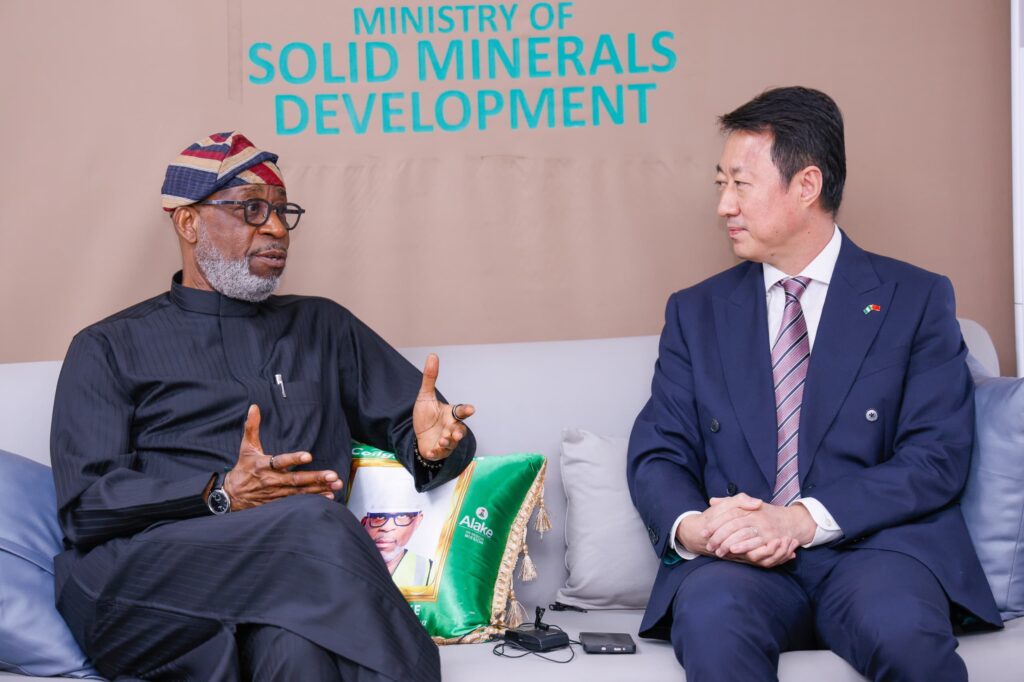The Chinese Ambassador to Nigeria, Yu Dunhai, has revealed that plans are underway to establish electric vehicle factories and other manufacturing ventures in Nigeria.
Mr Dunhai disclosed this to the Minister of Solid Minerals, Dr Dele Alake at a recent bilateral meeting.
This is contained in a statement by Alake’s Special Assistant on Media, Segun Tomori, on Sunday in Abuja.
Tomori said the ambassador stressed the need for greater collaboration between China and Nigeria to unlock the potential of Nigeria’s solid minerals sector by establishing electric vehicle factories.
According to him, the ambassador expressed support for Nigeria’s local value-addition policy, pointing out that one of President Xi Jinping’s key priorities is hinged on promoting Africa’s industrialisation.
Mr Dunhai stated that the leaders of Nigeria and China agreed to elevate bilateral relations to a comprehensive strategic partnership aimed at creating new opportunities for cooperation.
He recalled that President Bola Tinubu and Jinping, recently held high-level talks during Tinubu’s state visit to China in pursuit of that goal.
Tomori quoted him saying “Chinese companies were already deeply involved in Nigeria’s mining sector, from exploration to processing.
“We aim to deepen this collaboration, especially in line with President Tinubu’s eight priority areas, notably economic diversification through solid minerals,” the ambassador stated.
In response to concerns raised by the solid minerals minister, over the actions of a few operators tarnishing China’s image, the ambassador stated that the embassy and Chinese government had consistently advocated compliance with regulations.
He said that Chinese companies operating in Nigeria had been admonished by their government to abide by the country’s rules and regulations.
He added that the companies were also urged to implement the required Corporate Social Responsibility initiatives and adhere to environmental and safety standards.
According to Tomori, the ambassador stressed that Chinese authorities have zero tolerance for illegal mining, and are ready to partner with the Nigerian government to bring suspected culprits to justice.
On his part, Alake stated that Nigeria has a large market and the potential to reduce its reliance on fossil fuels through electric vehicle production.
He acknowledged the long-standing relations between Nigeria and China, stating that most Chinese firms operated within legal and regulatory frameworks.
He, however, expressed concerns over the actions of a few operators, stating that legal actions were being taken to address such situations.
“We have taken action against illegal operators, including some Chinese nationals. While isolated, such incidents undermine the good work of many compliant Chinese firms.
”We need your cooperation in ensuring that such culprits are brought to justice.”
The minister reiterated that Nigeria is open to business to serious investors, stating that investments in the nation’s mining industry remained focused on local value addition.
“We now prioritise local processing to drive Nigeria’s development. For instance, with the abundance of lithium, we want to see local manufacturing of electric vehicles and batteries,” he said.
NAN






